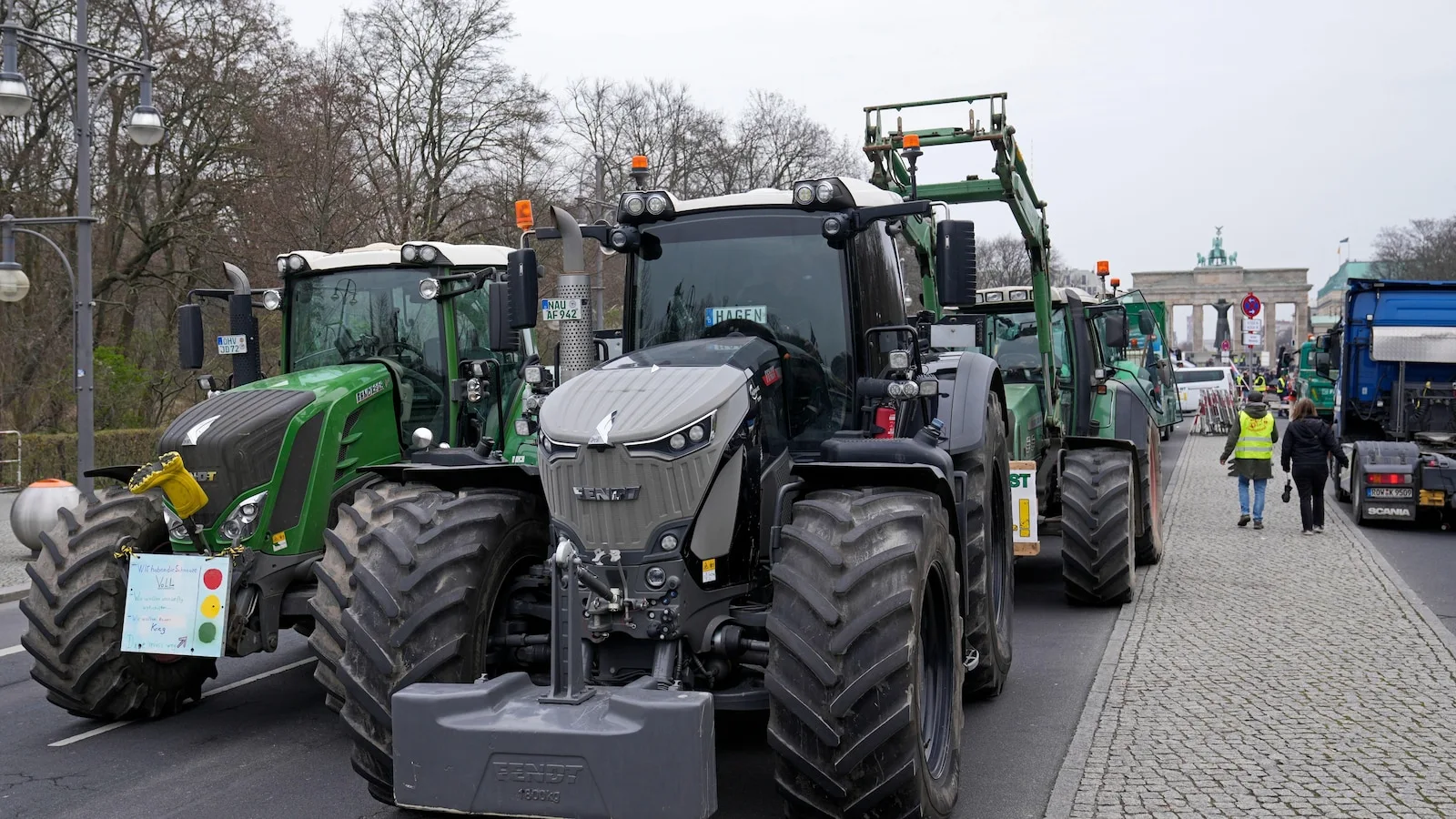
I live in a farming community in Saskatchewan, Canada. It’s really mind blowing how many farmers don’t give two shits about climate change. They’re really not unlike heavily profit-driven companies just looking for next quarter gains, completely oblivious to other longer term factors that might be detrimental to their business.
It’s sad in a way. This is their livelihood, and rather than adapt to the risk to bring some sort of long term sustainability, they’re just looking for that next brand new model of truck to buy when harvest comes in this year.

“It is difficult to get a man to understand something, when his salary depends on his not understanding it.” - Upton Sinclair
The myth of the humble farmer or small holder living in harmony with his land is as bullshit as the myth of the noble savage. The vast majority of farmers see the planet as a resource to make money from. If they take any heed to local conditions, they think of it in tragedy of the commons style. For instance, in many places around the world, the aquifers irrigating farmland have less than 20 years before they’re emptied. Local farmers are aware. They take it as a warning to pump as much water as possible as fast as they can, because if they don’t take the water and turn it into profit, someone else will, and the water will still be gone.
And that’s not even getting into how these brutal exploitative farming methods are what allowed the Earth’s population to balloon to a unsustainable 8 billion and ravage the land and devour resources of every sort.
The vast majority of farmers are the enemy of the planet. In my more green authoritarian moments, I envision nationalizing every acre and setting up eco villages of subsistence farmers populated by the poor of our cities and worked by former corporate middle management reduced to serfdom. No one should own whole square miles of farmland. Not even farmers.

Where I live, way down South in the USA, the general attitude is God isn’t going to let this happen. Most of my neighboring towns are projected to be under water in the next two decades, tops. But God said he wouldn’t destroy the earth with floods again…

Could always point out that God isn’t the one destroying the earth with floods.

I tried. Have you spent time in conversation with maga and q-adjacent personalities? I maybe changed some perspectives of one. If so, I’m very grateful for both his and my sake. I’ll continue to carry the message, but at some point, you move on to the next one, you know?

5 years minimum, they’re going to protest again against insurance companies because their rates arw going to be on the roof.

It’s highly disturbing how the general public had a vastly different reaction to farmers blocking traffic to protest, as opposed to climate activists blocking traffic to protest.
Extremely nasty, in fact.

I called my brother and sister in law out over exactly this, because we heard the beeps and honks in the distance in our town. Self reflection lasted all of 5 seconds, and then it was back to regularly scheduled programming. People don’t want to think about the horrifying environmental situation we’re careening towards, so they just… don’t.
It’s almost like the reaction is about the message, not the act of blocking things.

This legislation may have gone down better if the EU wasn’t simultaneously planning to put more Environmental Protection Laws on their own farmers while opening up their market to South American farmers! Even setting aside the food security and job issues this would create in Europe how do you overlook the fact that shipping all of that food from South America to Europe is bad for the environment?
To become a “Carbon Neutral Continent” the EU was essentially trying to do the same with South America and Food that the West has done with China and Bulk Manufacturing…keep its own hands clean by outsourcing the mess to somewhere else.

I think carbon footprint calculations should really include imported carbon. My “electronic device” was manufactured in China. The carbon emitted in its manufacture should follow the product to me, as I am the reason it was manufactured.
People blaming China and other countries that manufacture a significant amount of products with relatively dirty power are really just shirking the blame. When imported carbon is considered, the US and Canada are the worst polluters per capita.

Exactly. If farmers were better off atm, it probably wouldn’t be such a big issue for them. Traditional farmers are quickly dying out where I live. They have to opt for use of pesticides, mass production of meat and other crap to even make a living. Either that, or some lucky few get enough customers that buy their products at a high premium.

We could garden and farm by ourselves and the communities we can make, staying as close to nature as possible, without tilling, irrigating, or using chemicals, and by using mulch and some native plants instead.

The vote was on restoring 20% of the EUs most damaged landscapes until 2035. This is impossible to do with a small little garden.

Its the farmers that oppose both plans though.

I was just talking about an alternative to those farmers. The whole thread was about those farmers, not the vote. If they want to restore the damaged landscapes, they could leave that to us as well, because we could cover the damaged landscapes with humanure compost that will break down most toxins. (Kitchen scraps also go into humanure compost.)
Also, besides mulch and native plants, we could grow drought-tolerant crops instead of irrigating, and to the degree that we can make gardener communities, we can scale up our gardens to farms.

